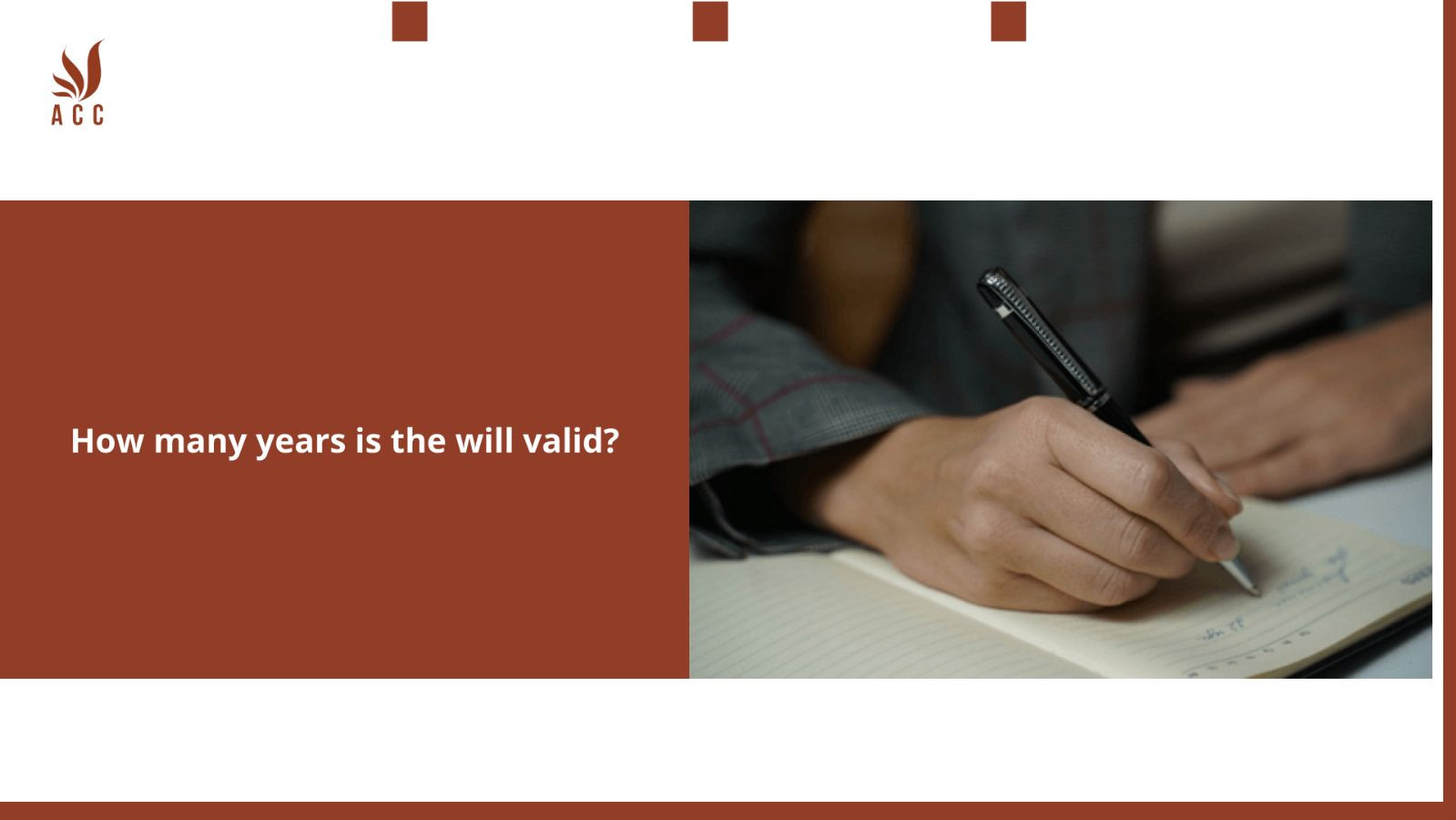The validity of a will does not have a set expiration date in terms of years. Instead, the validity of a will is determined by legal principles and requirements. In general, a will is considered valid if it meets the following criteria:
1. Legal Capacity:
The testator (the person making the will) must have the legal capacity to create a will. This typically means they must be of sound mind and at least the legal age specified by the jurisdiction.

2. Intent:
The testator must have the intent to create a will and to specify how their assets should be distributed after their passing.
3. Proper Execution:
The will must be executed (signed and witnessed) in accordance with the legal requirements of the jurisdiction where it was created. These requirements can vary by location but often involve the presence of witnesses and notarization.
4. Free Will:
The testator must create the will of their own free will and without undue influence or coercion from others.
5. Revocation:
The will should not have been revoked or superseded by a subsequent will or codicil (an amendment to the will) unless such revocation is done legally.
6. Compliance with Local Laws:
The will must comply with the laws and regulations of the jurisdiction where it was created. Different places may have different rules and requirements regarding wills.
While there is no set expiration date for the validity of a will, individuals often review and update their wills periodically to reflect changes in their circumstances, such as marriage, divorce, the birth of children, or changes in assets. This ensures that the will accurately reflects their current wishes.
7. When using ACC Law Firm's testament, entrepreneurs will receive
8. Q&A
Q1: How long is a will valid for?
A1: A will is typically valid until the death of the testator (the person who created the will). Once the testator passes away, the will becomes active and the process of administering the estate and distributing assets according to the will begins.
Q2: Is there an expiration date for a will?
A2: Generally, there is no expiration date for a will. However, it is recommended to periodically review and update a will to ensure it reflects the testator's current wishes and circumstances. Life events such as marriage, divorce, birth, or death of beneficiaries may necessitate changes to the will. It is advisable to consult with an attorney to determine when updates or modifications to the will are necessary.
Q3: Can a will become invalid over time?
A3: A will can become invalid if it is revoked, replaced by a new will, or if there are legal challenges to its validity. Revocation can occur if the testator intentionally destroys or cancels the will, or if a new will is created that explicitly revokes the previous one. Legal challenges to a will's validity can arise if there are concerns about the testator's mental capacity, undue influence, fraud, or improper execution of the will.
Q4: Can a will be considered valid indefinitely?
A4: While a will does not have an expiration date, it is important to ensure that the will complies with the legal requirements of the jurisdiction in which it was created. Laws regarding wills can change over time, so it is advisable to periodically review and update the will to ensure it remains valid and enforceable.
Nội dung bài viết:






Bình luận